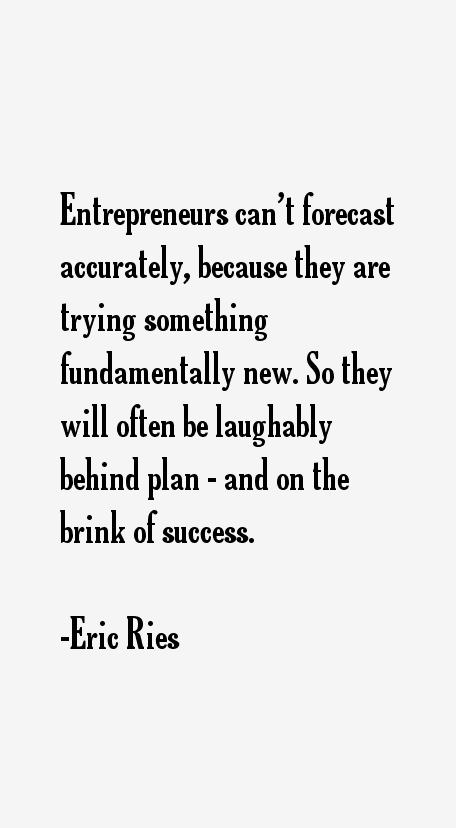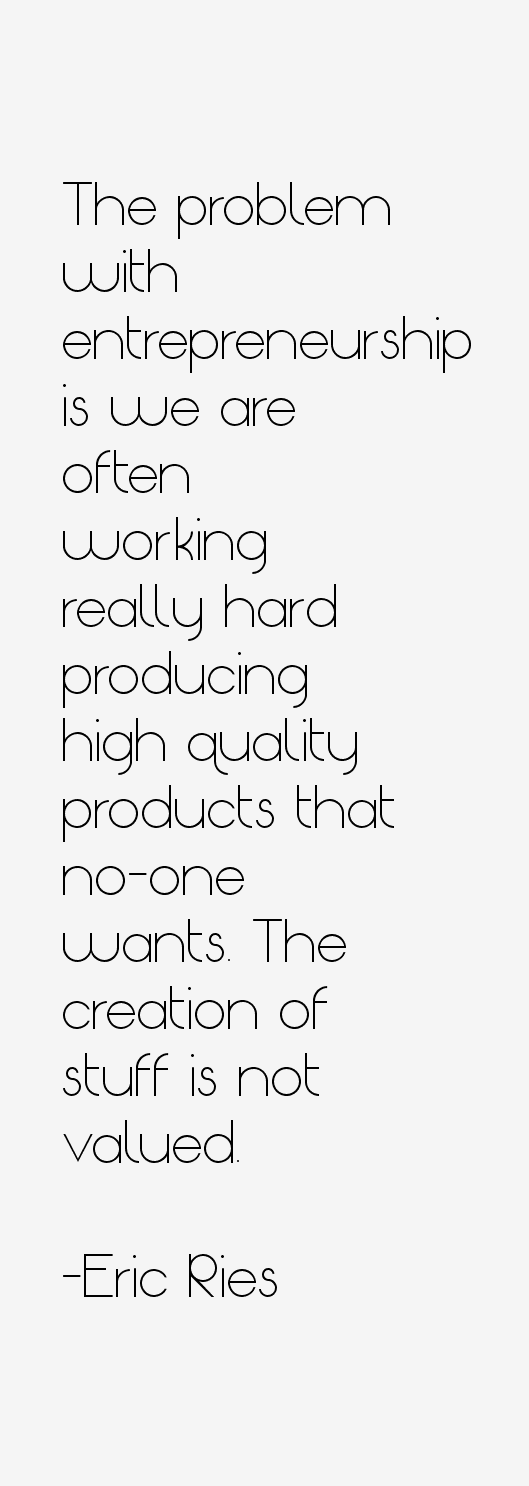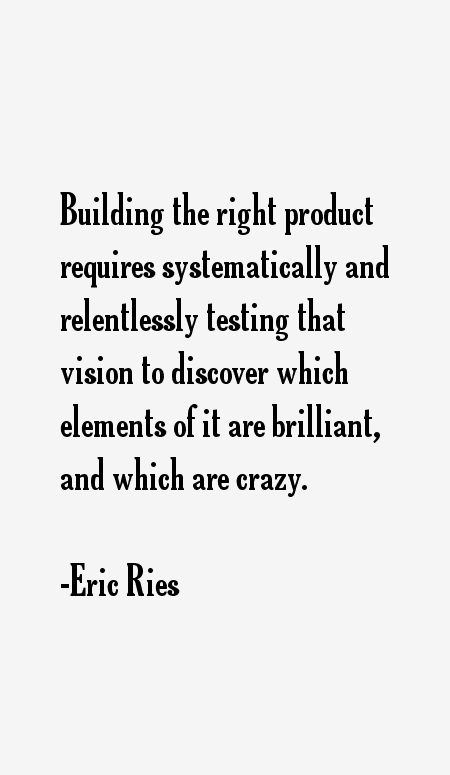Eric Ries Quotes & Sayings (Page 4)
Eric Ries quotes and sayings page 4 (businessman). Here's quote # 31 through 40 out of the 54 we have.
“As an entrepreneur, I knew that if my company failed, I could always try again. So I often felt that the only real risk of true financial ruin came from the possibility of a serious illness that either exceeded my insurance plans lifetime limits, or was not covered due to rescission.”

“Entrepreneurs can't forecast accurately, because they are trying something fundamentally new. So they will often be laughably behind plan - and on the brink of success.”
“It was 1999, and we were building a way for college kids to create online profiles for the purpose of sharing... with employers. Oops. I vividly remember the moment I realized my company was going to fail. My co-founder and I were at our wits' end. By 2001, the dot-com bubble had burst, and we had spent all our money.”
“Our educational system is not preparing people for the 21st Century. Failure is an essential part of entrepreneurship. If you work hard, you can get an 'A' pretty much guaranteed, but in entrepreneurship, that's not how it works.”
“There was a study done in the early 20th century of all the entrepreneurs who entered the automobile industry around the same time as Henry Ford; there were something like 500 automotive companies that got funded, had the internal combustion engine, had the technology, and had the vision. Sixty percent of them folded within a couple of years.”
“Entrepreneurs always pitch their idea as 'the X of Y', so this is going to be 'the Microsoft of food.' And yet disruptive innovations usually don't have that character. Most of the time, if something seems like a good idea, it probably isn't.”

“Prove to yourself that your business, in micro-scale at least, creates value. If you believe it, you'll find it that much easier to convince potential investors, partners and employees, too.”

“The problem with entrepreneurship is we are often working really hard producing high quality products that no-one wants. The creation of stuff is not valued.”
“There's nothing wrong with raising venture capital. Many lean startups are ambitious and are able to deploy large amounts of capital. What differentiates them is their disciplined approach to determining when to spend money: after the fundamental elements of the business model have been empirically validated.”

“Building the right product requires systematically and relentlessly testing that vision to discover which elements of it are brilliant, and which are crazy.”
Eric Ries Quotes Rating
No Ratings Yet
Leave A Comment
























